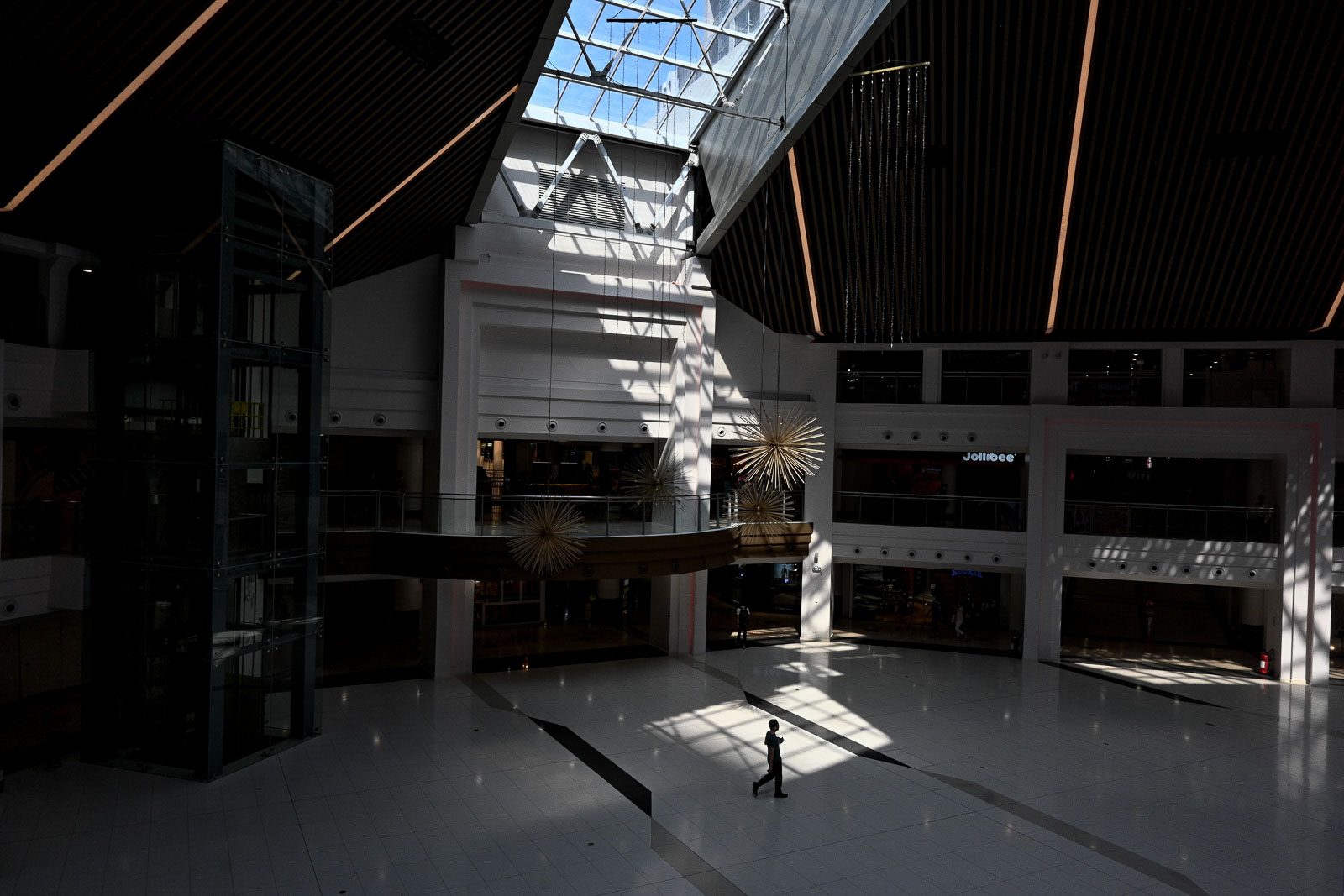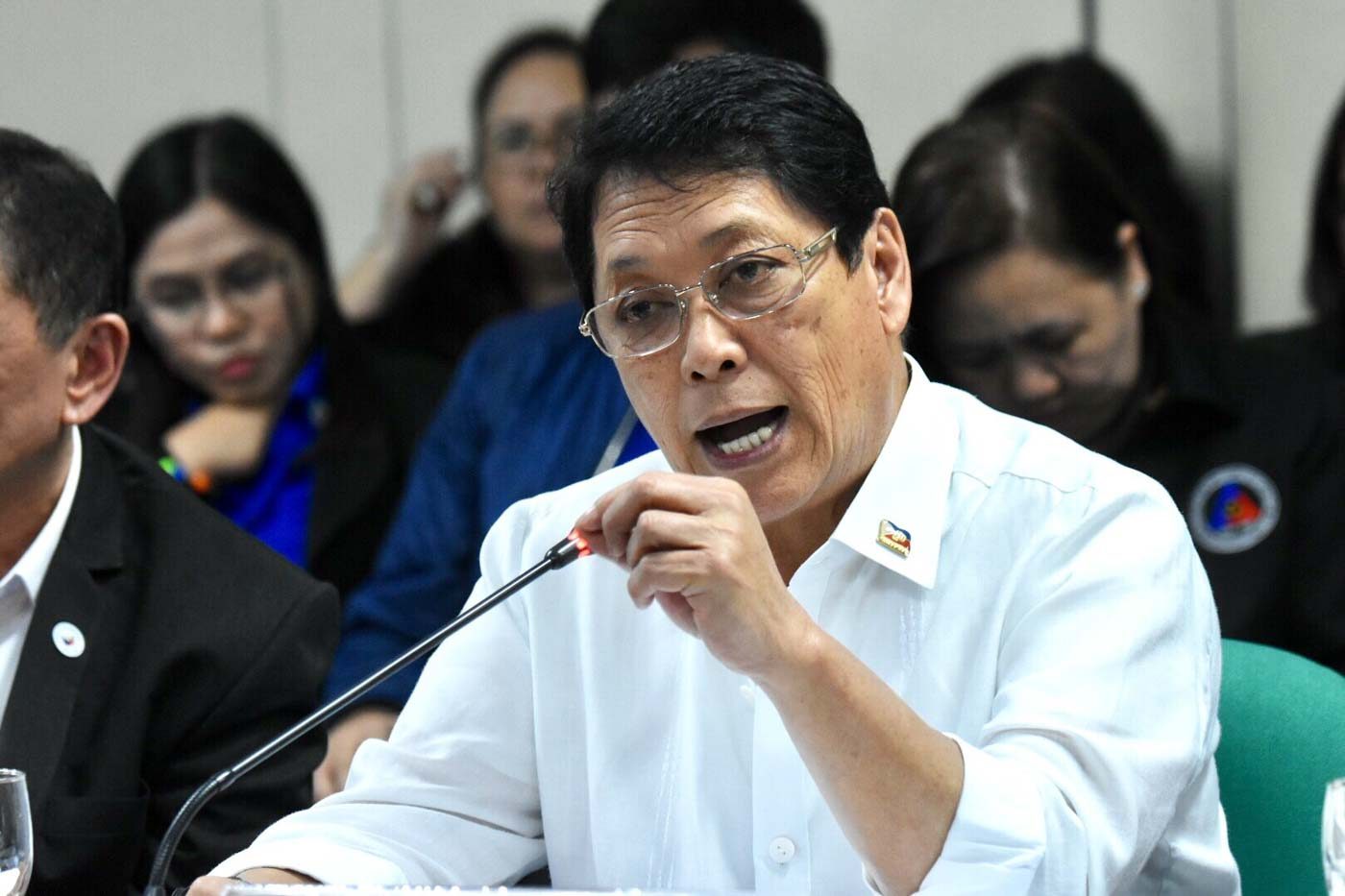SUMMARY
This is AI generated summarization, which may have errors. For context, always refer to the full article.

MANILA, Philippines – It was a Sunday. At around 3 pm on the 16th of March, Presidential Spokesperson Salvador Panelo announced that Luzon will be placed under “enhanced community quarantine (ECQ).”
For many workers who have tried to go about their own business when Metro Manila was placed under a lockdown, Panelo’s statements didn’t mean much.
Until it hit them: They would no longer be required to report to work, they were told.
At least 2.3 million Filipino workers have been affected by the coronavirus lockdown. During the early weeks of strict quarantine policies, some one million workers were conservatively thought to be affected, until it spread to the rest of the country and ballooned to the figures we now know.
In a policy brief, economist Marjorie Muyrong, however, estimated that there are some 15.9 million Filipinos who have been displaced by the Luzon lockdown.
But the labor department admitted it could not provide aid to majority of the workers who were displaced. By having only P3.4 billion in funds, they could provide assistance to only 650,000 workers, or a fourth of those whose jobs were affected by the pandemic.
On May Day, a labor coalition demanded better wage subsidy and occupational safety once the entire country enters what has often been referred to as the “new normal.”
Service sector is hardest hit
Having been recently regularized, Elijah*, a project assistant in the fashion retail industry, has so much work ahead of her. Working in a small team, she does a multitude of tasks – marketing and sales, monitoring store operations, and general executive assistance.
When Metro Manila was placed under a lockdown, the malls decided to close shop, while some shortened their hours. Elijah was busy then. Their firm, after all, had stores in malls across the metro.
In the early days of the metro-wide quarantine, she talked to their clients and created collaterals for their social media accounts to inform customers about their status.
“After not hearing from my direct bosses for a few days, I decided to ask about the status of my employment. On my supposed next pay day – that would be March 30th – I was informed by my bosses that they will be advancing half of my 13th month pay to help me with my finances during the quarantine,” Elijah told Rappler.
“I took this as an indication that I won’t be working during the ECQ. And that was confirmed by my boss when I checked,” she said, adding that they received compensation worth 4 days of minimum wage for the month of April from their employers.
Given the fear of asymptomatic cases, the future looks bleak for the services sector. More than half of the Philippine workforce are employed in that sector – which ranges from retail, transportation, accommodation, and food industry to public administration, education, and entertainment.
According to the January 2020 Labor Force Survey, some 42.65 million Filipinos are employed, 24.99 million of them working in the services sector.
A huge part of the services sector is in the wholesale and retail trade – employing 8.62 million workers – which accounts for a third of the sector. It is followed by those in transportation and storage, where 3.4 million are employed, constituting 13.6% of the sector.
These two top subsectors are among those heavily affected by the lockdown as millions have been told to stay at home.
On March 19, DOLE announced that private sector workers nationwide, whose jobs were affected by the lockdown, are entitled to a P5,000-wage subsidy. Employers were asked to apply on behalf of their workers.
Yet Elijah said she hasn’t heard about any updates on whether or not there will be government aid for her.
“I would prefer that I earn a steady income during this trying time, as I still have bills to pay and am forced to dip into my savings to pay for them. If this pandemic continues for more than a couple of months, there’s a big chance my savings will be depleted,” said Elijah, who started working on a side hustle online to earn.
P5,000 cash aid?
In a city a thousand kilometers south of Manila, workers and employers were not spared from the threat of a coronavirus outbreak. The Butuan City government in Agusan del Norte implemented its own home quarantine policy starting March 19.
Maria*, who helps run her family’s food business, had to close their studio and two of their shake and ice cream stalls when malls temporarily shut down for the supposedly month-long lockdown in the chartered city.
On March 24, Maria had sent an application for cash aid for their workers, all 8 of them who run their studio and food stalls. The DOLE provincial office acknowledged her email a day after, on March 25. More than a month since the response, she has not heard whether their application has been approved or not.
Maria’s family looked forward to summer. As she told Rappler, “it’s our season.”
“Summers are the best for everything. It’s our season when students would apply for summer classes like dance and art classes, and when people buy refreshments the most. We have prepared for that, but now our efforts have gone to waste,” she said, adding that they are considering canceling their planned new stalls in SM Butuan.
Maria said that she had sent follow-up emails to DOLE but these went unanswered. The labor department’s provincial office also regularly uploads on its Facebook page a list of firms whose applications for the P5,000 aid were granted, but their business wasn’t part of it.
While waiting for the cash aid they’re uncertain about, Maria had provided the employees their 13th month pay in advance and an additional P2,000 from their own funds. But the extension of the lockdown pushed their workers to seek financial help from them.
“What we gave was good for only one month. That’s the threshold. Starting last week, they asked for financial help one by one. We give them what we can but of course, our funds are not unlimited,” she said.
Like Maria, Jimmy*, a human resources head in a big firm in Davao City, applied for the wage subsidy on behalf of their workers. It has been an equally frustrating experience with emails bouncing back.
Jimmy could only assume that the DOLE’s email inbox was already full, as the local office would provide new email addresses for them to submit their application.
The last time DOLE Davao uploaded the approved list of company-beneficiaries was on April 8. Jimmy’s firm was not listed there.
DOLE stopped accepting applications for the cash aid on April 15, saying their funds were already depleted. Now, the establishments aren’t sure whether aid is coming or not.
“It’s a really difficult situation. Our workers who listen to the government’s pronouncement think there is money. But where is it? Now, we look like we’re the bad guys here because they don’t get anything. The government isn’t really ready for these kinds of scenarios,” Maria said.
‘No more funds’
DOLE had initially allotted P1.7 billion of its funds for the coronavirus adjustment measures program (CAMP) for private sector workers, covering more than 345,000 Filipinos.
The labor department had to realign some P1.5 billion from its 2020 budget to be able to provide the P5,000 wage subsidy for 300,000 more people. With a total of P3.4 billion in budget, DOLE targets to assist about 650,000 workers. By Thursday, April 30, more than 522,000 people have received the cash aid.
But the number of the target beneficiaries is far from the total workers displaced, which already ballooned to 2.3 million Filipinos as of end-April.

Labor Secretary Silvestre Bello III is still hopeful they would be able to receive additional funding, as he said that the department has yet to receive its share from the government’s emergency subsidy program.
Under the Bayanihan to Heal as One Act, DOLE’s CAMP is among those that will be prioritized for funding augmentation. So far, they have received P1.5 billion from national government savings, but this has been allocated for emergency subsidy to some 150,000 overseas Filipino workers.
Philippine economic managers were eyeing to request a supplemental budget from Congress, arguing that the spending authorization from the 2019 and 2020 appropriations law is not enough to cover the requirements to battle the pandemic.
While waiting for the additional funds whose time of arrival isn’t certain, Bello said that small businesses can apply for the Department of Finance’s Small Businesses Wage Subsidy Program (SBWS) which has P51 billion in funding and could cover 3.4 million workers for two months.
What happens after the lockdown?
It remains unknown when the lockdown in Metro Manila will be downgraded, but other low-risk areas are now under relaxed quarantine policies which have allowed people to work, as long as health protocols are followed.
In preparation for that nationwide scenario, Bello announced DOLE’s P25-billion post-coronavirus recovery plan that will be funded by a debt-ridden coronavirus war chest.
It includes a million jobs in the provinces, and another 3-month wage subsidy program for micro and small enterprises, those in the gig economy, and members of the media. Details are yet to be announced.
This is DOLE’s plan, as the Philippines braces for negative growth due to the extended lockdown that has left the economy at a standstill. “For me, what’s important is employment,” Bello said Thursday, when asked about the department’s gift to workers on May 1.
But labor groups are not convinced, specifically about job creation in the provinces. Nagkaisa Labor Coalition chairperson Sonny Matula cited urban migration as the reason why.
“Philippine development plans repeatedly mention this strategy but in reality, urban migration remains the norm because rural development remains stranded, agriculture is in a sad state, zero industrialization, and provincial wages remained at starvation levels,” Matula said. (READ: Coronavirus lockdown pushes farmers, fisherfolk into deeper poverty)
As the country prepares for the time when people will be allowed to work again, Nagkaisa released an 11-point manifesto on Labor Day, asking for an income guarantee of P10,000 or higher, protection against a possible second wave of infection, and free medical services, among others.
“More than majority of the people in need are getting more frustrated about the slow and confusing delivery scheme of the promised help. Asking workers to return to work without the most effective mass testing method may end up wasting whatever gains we had during the quarantine,” Matula said.
Will the government listen to workers’ demands? – Rappler.com
*Names have been changed to protect the identity of the interviewees.
All quotations were translated to English.
Add a comment
How does this make you feel?
There are no comments yet. Add your comment to start the conversation.